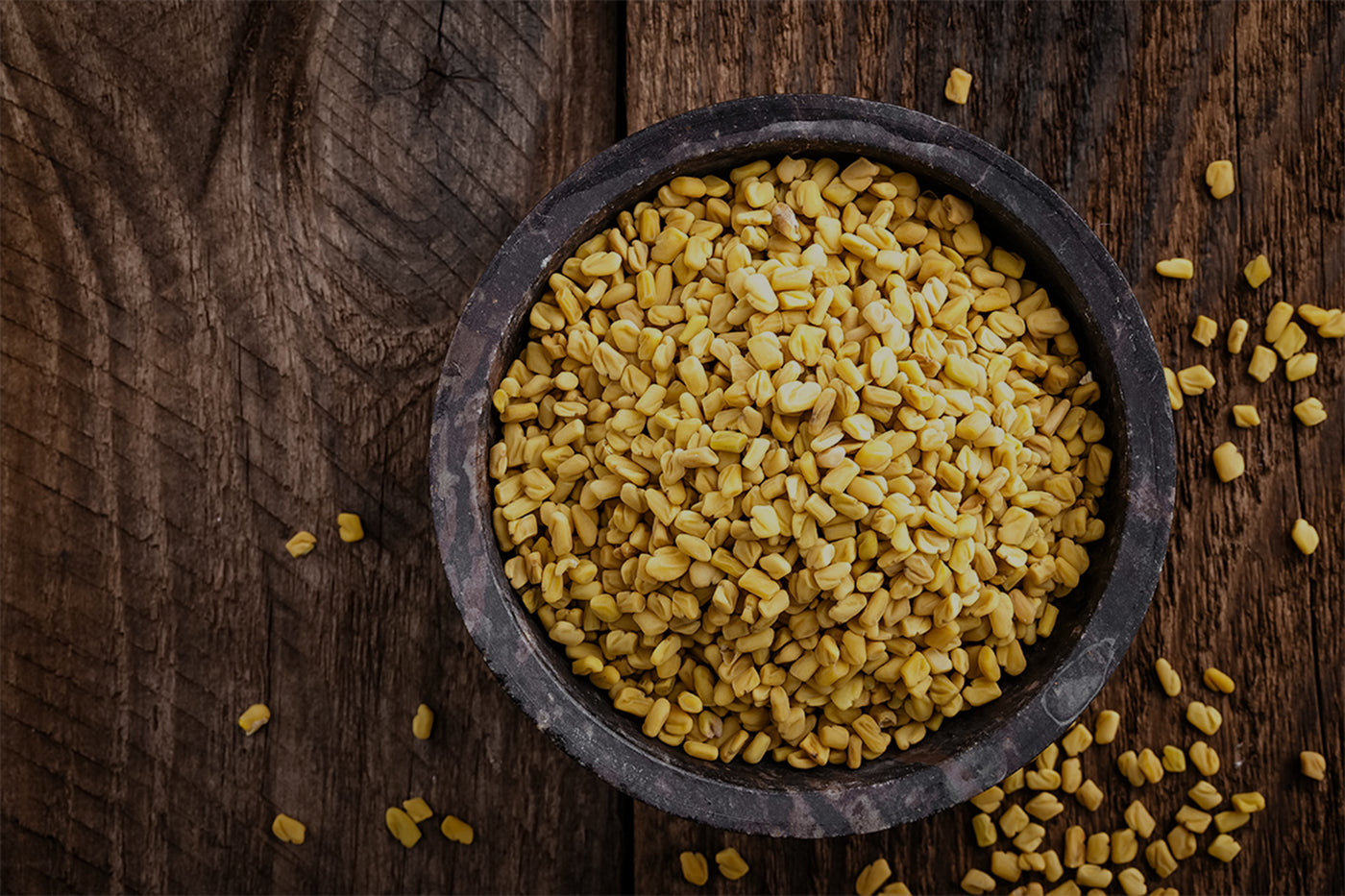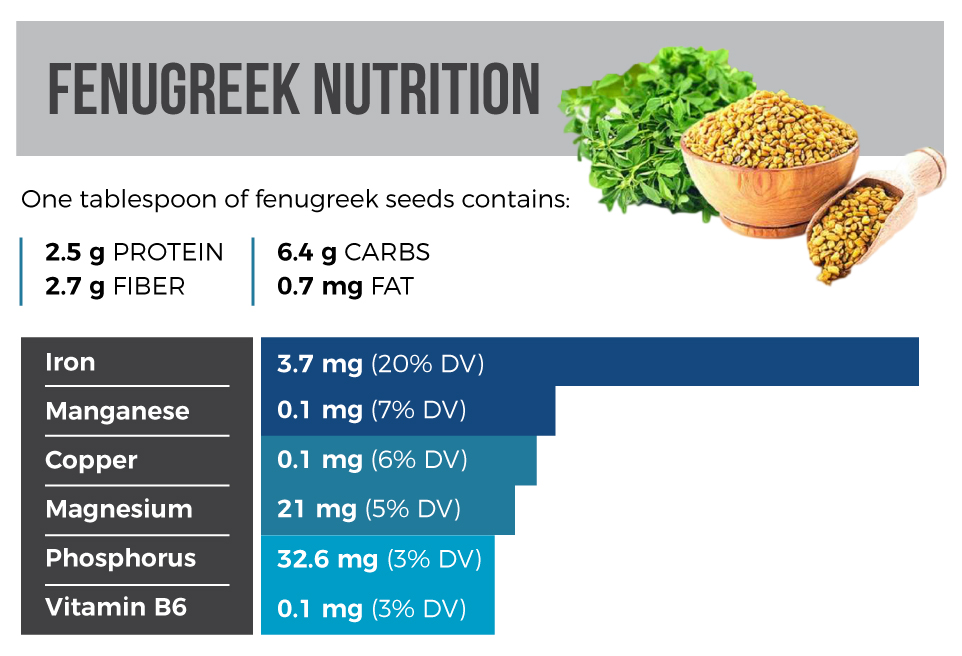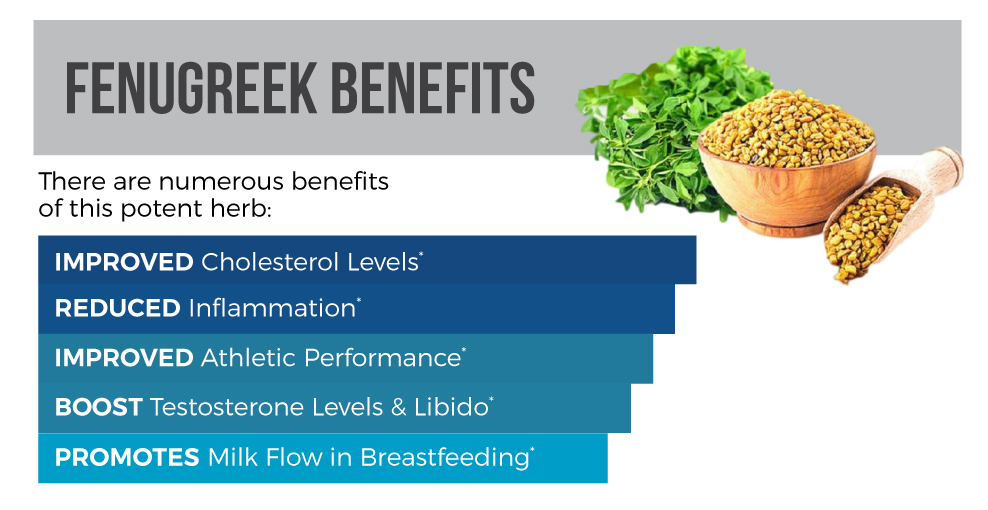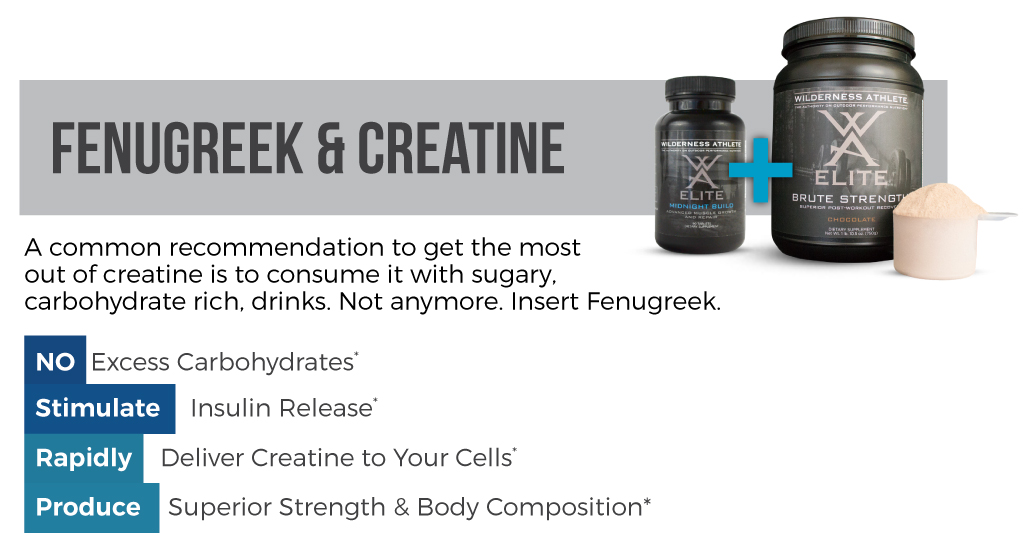Your Cart is Empty

Fenugreek, an annual herb that stands between two and three feet in height, has some powerful health benefits that extend far beyond its culinary uses in many Indian and Mediterranean recipes. Fenugreek has a long history of use in traditional medicine and sees most of its cultivation in North Africa, Egypt, India, and the Middle East. Most of fenugreek’s medicinal properties are concentrated in its seeds, a tablespoon of which contains 2.5 grams of protein, 2.7 grams of fiber, and 6.4 grams of carbs. However, these macronutrients are not the end of the story with how fenugreek can improve your life. A wide variety of beneficial nutrients like iron, magnesium, manganese, copper, and phytonutrients such as choline, trigonelline, and diosgenin contribute greatly to fenugreek’s powerful capabilities.*

The potential health benefits of supplemental fenugreek are vast, ranging from improved cholesterol levels, reduced inflammation, to improved athletic performance. One of fenugreek’s more notable and appealing benefits however, is its ability to improve testosterone levels and libido in both men and women. With several clinical studies showing positive testosterone improvements in men, one study in particular finds some eye opening results. Co-authored by the Chair of Wilderness Athlete’s Science, Research and Formulations Board, Harry G. Preuss, M.D. – free testosterone levels were improved up to 46% in 90% of the study population given a proprietary fenugreek extract, consisting of 50 male volunteers ranging from 35 to 65 years of age. Additionally, 85.4% of the study population showed improved sperm counts, and a majority of the subjects enrolled in the study demonstrated elevated mental alertness and mood. Cardiovascular health and libido were also significantly improved in the study period.* (Read more about this study HERE)

The hormonal and physiological benefits of fenugreek are not exclusive to men alone. One study conducted in Sydney, Australia saw powerful results as well in healthy menstruating women reporting low sexual drive. Eighty women ranging from 20 to 49 years of age were randomly assigned either an oral dose of fenugreek seed extract or a placebo over two menstrual cycles. Significant increases were shown in free testosterone and estradiol in the active group as compared to the placebo group. As in men, testosterone in women is important for building and retaining lean body mass.* (Read more about this study HERE)
Breastfeeding is also something that fenugreek can help with for women who experience low milk supply. Acting as a galactagogue (a substance which increases lactation), fenugreek can stimulate the milk ducts and increase milk production in as little as 24 hours.* (Read more about this study HERE)
While testosterone is a sex hormone, it also plays very crucial role in the body in other ways. In addition to regulating sex drive, it also effects bone mass, fat distribution, muscle mass and strength, and the production of red blood cells. As we age, our natural testosterone and other hormonal producing capabilities declines. This decline can account for many symptoms such as low energy, low sex drive, loss in muscle viability and strength.*
If you need further convincing as to why fenugreek should be included in your diet, perhaps its effect on cellular creatine levels piques your interest. If you have stayed in tune with our Label Reader’s Digest articles, or pay attention to performance nutrition even a little bit, you are likely familiar with creatine as a commonly used and highly effective means for producing adenosine triphosphate (ATP) – the bodies primary source of muscular energy. A common recommendation to get the most out of creatine is to consume it with fruit juice or other sugary, carbohydrate rich, drinks. Sugar content can assist in a more rapid delivery of creatine to your cells by way of an insulin spike which in turn drives nutrients into cells. The obvious downside to this approach is the excess calories and inflammation that come with high amounts of sugar. This is where fenugreek offers a much lower calorie yet effective way to increase cellular creatine absorption. By stimulating an insulin release, fenugreek effectively increases creatine absorption as simple sugars do but without the excess carbohydrate and calorie load.*

Several studies have analyzed the combined effect of creatine and fenugreek, as well as the stimulation of insulin release brought on by fenugreek. In one study published in the Journal of Sports Science Medicine, 47 men were followed over an 8 week period while being under strict workout and diet plans. Group A was given creatine combined with dextrose (simple sugar), and group B was given creatine in conjunction with fenugreek. The improvements observed in Group B in max strength in both upper and lower body exercises, as well as body composition, was superior to the improvements in the group given the creatine/dextrose combination.* (Read more about this study HERE & HERE)
The promotion of healthy testosterone levels, along with anti-inflammatory benefits is why Fenugreek has earned its seat at the table of our most recent product formulation, Elite Midnight Build. Aiding the powers of Fenugreek, zinc and magnesium accompany this herbal ingredient to enhance its physiological response. Wilderness Athlete’s Elite products are aimed at increasing muscular performance and rapid recovery for athletes training at a high level. As you are well aware, effective recovery is the foundation of growth and muscular development. Midnight Build is the latest generation of “Nighttime Optimizer”, and is truly an Elite update to its formula that will excel your recovery like you have yet to experience.*
*These statements have not been evaluated by the Food and Drug Administration. This product is not intended to diagnose, treat, cure, or prevent any disease.